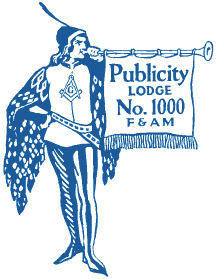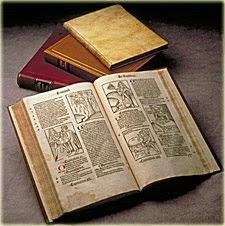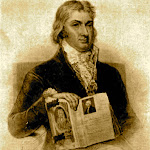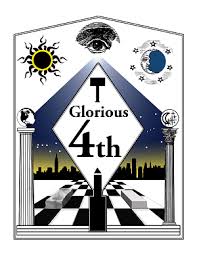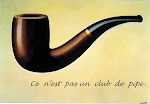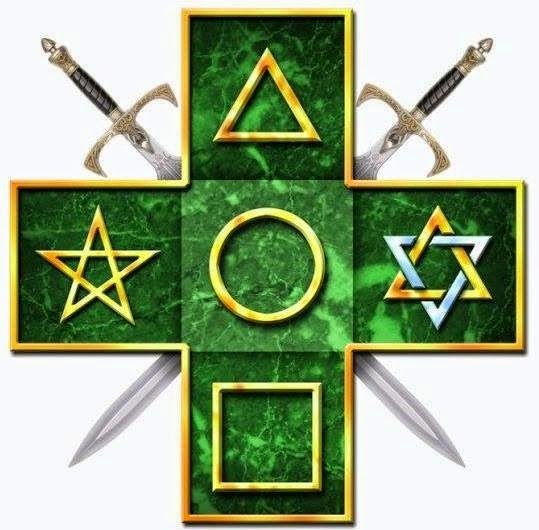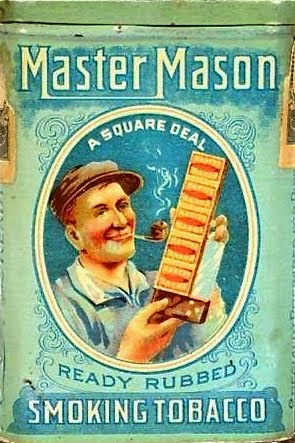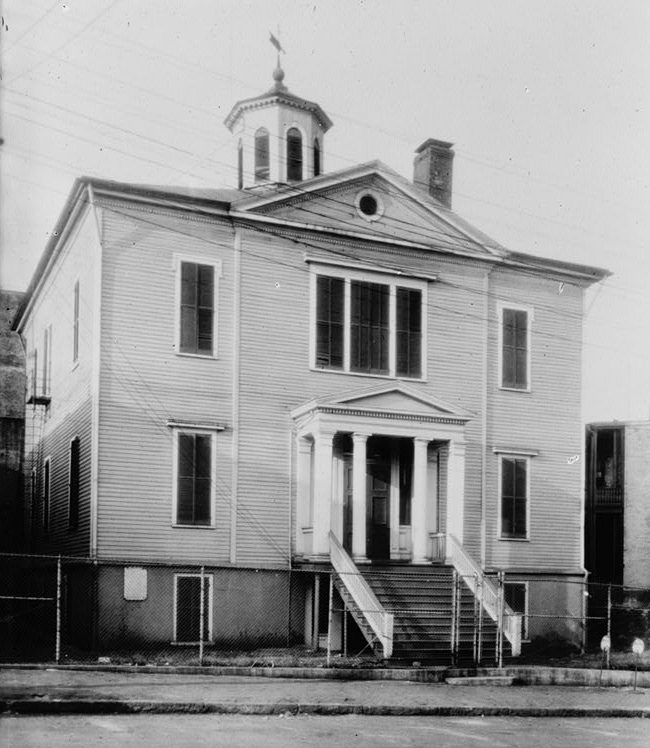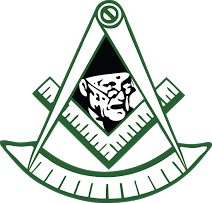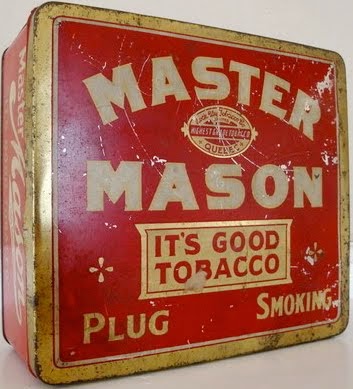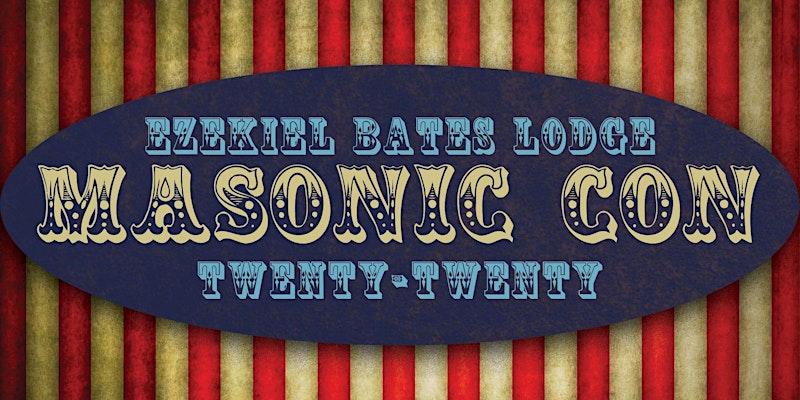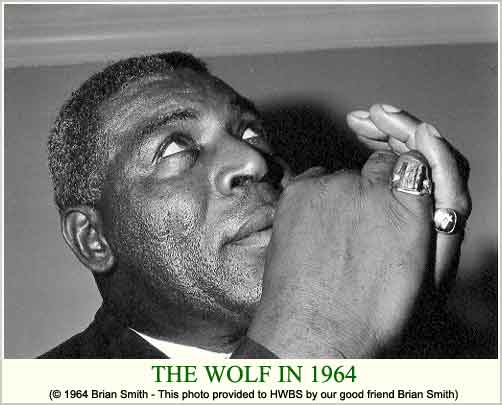Thursday, January 28, 2021
‘Grand Lodge looks to October’
The Grand Lodge of New York is aiming for an October date for its next annual communication, Grand Master Bill Sardone announced minutes ago in a Zoom discussion.
After much time invested in exploring potential alternatives, from online conferencing to relocating the full agenda physical meeting to the Catskills, the GLNY leadership team determined that October at Masonic Hall in Manhattan is the optimal contingency. (A brief business meeting will be held May 3.)
“The planets have to line up to do this,” Sardone said, explaining the logistics of arranging hotel accommodations, bus transportation, meals, and other planning that demand much lead time—all potentially vexed by the unknowable vicissitudes of the pandemic itself.
And some form of amendment to Grand Lodge’s Constitution is being drafted in anticipation of future similar emergencies that would prevent Grand Lodge from convening.
No date was mentioned.
Grand Lodge has been busy steering the fraternity through the months of lockdowns and other restrictions. Sardone listed adaptations varying from degree rituals modified for physical distancing to grant money to lodges of up to $2,000 to improve building security as successes in managing this uncertain time.
At the local level, the ten-attendee maximum at meetings is lifted, with the decision of how best to proceed left to the Worshipful Master in accordance with the State of New York’s Micro-Cluster Strategy. Physical distancing and masks remain required. These apply to all concordant bodies also.
Look for official word from the Grand Master shortly.
Wednesday, January 27, 2021
‘Livingston Library closes’
The Chancellor Robert R. Livingston Masonic Library of the Grand Lodge of New York is closed, according to a message today from the institution.
“Due to the increasing numbers of COVID-19 cases in New York State, the Livingston Masonic Library & Museum will be closed temporarily until further notice,” reads its website.
The civil authorities here in New York boasted today of lower transmission rates and fewer hospitalizations, while announcing lifting socialization restrictions and promising more liberalization is soon to come.
Library staff will be on duty in limited hours, but no visitations are possible.
A memo disseminated yesterday by Grand Master William M. Sardone, addressing the subject of the belated Annual Communication of the Grand Lodge now scheduled for May, says plans are being made to proceed with that meeting, and reminds “the COVID danger is real.”
“The safety of our members, their families and friends, as well as the future of our fraternity, are always part of every discussion,” Sardone adds.
The Grand Master himself was hospitalized recently to be treated for both COVID-19 and pneumonia.
He closed his letter to the fraternity with details of a Zoom conference for tomorrow night when the brethren may discuss and ask questions about the upcoming Grand Lodge session. The May 2020 annual meeting was canceled, keeping the grand staff in place an additional year.
(My own lodge has not convened since last March, instead employing Zoom for substitute meetings, plus educational lectures and planning sessions.)
Monday, January 25, 2021
‘Shall brothers be for a’ that’
Robert Burns, Scotland’s most beloved historic Freemason, was born on this date in 1759. Among his most famous works is “A Man’s A Man for A’ That,” wherein he speaks of virtues in terms every Mason can understand, despite the Scots Gaelic tongue. It is dated 1795, the year before his death at age 37.
A Man's A Man For A' That
by Robert Burns
Is there for honest poverty
That hangs his head, an' a' that
The coward slave, we pass him by
We dare be poor for a' that
For a' that, an' a' that
The rank is but the guinea's stamp
The man's the gowd for a' that
What though on hamely fare we dine
Wear hoddin grey, an' a' that
Gie fools their silks, and knaves their wine
A man's a man, for a' that
For a' that, an' a' that
Their tinsel show an' a' that
The honest man, though e'er sae poor
Is king o' men for a' that
Ye see yon birkie ca'd a lord
Wha struts an' stares an' a' that
Tho' hundreds worship at his word
He's but a coof for a' that
For a' that, an' a' that
The man o' independent mind
He looks an' laughs at a' that
A prince can mak' a belted knight
A marquise, duke, an' a' that
But an honest man's aboon his might
Gude faith, he maunna fa' that
For a' that an' a' that
Their dignities an' a' that
The pith o' sense an' pride o' worth
Are higher rank that a' that
Then let us pray that come it may
(as come it will for a' that)
That Sense and Worth, o'er a' the earth
Shall bear the gree an' a' that
For a' that an' a' that
It's coming yet for a' that
That man to man, the world o'er
Shall brithers be for a' that
by Robert Burns
Is there for honest poverty
That hangs his head, an' a' that
The coward slave, we pass him by
We dare be poor for a' that
For a' that, an' a' that
The rank is but the guinea's stamp
The man's the gowd for a' that
What though on hamely fare we dine
Wear hoddin grey, an' a' that
Gie fools their silks, and knaves their wine
A man's a man, for a' that
For a' that, an' a' that
Their tinsel show an' a' that
The honest man, though e'er sae poor
Is king o' men for a' that
Ye see yon birkie ca'd a lord
Wha struts an' stares an' a' that
Tho' hundreds worship at his word
He's but a coof for a' that
For a' that, an' a' that
The man o' independent mind
He looks an' laughs at a' that
A prince can mak' a belted knight
A marquise, duke, an' a' that
But an honest man's aboon his might
Gude faith, he maunna fa' that
For a' that an' a' that
Their dignities an' a' that
The pith o' sense an' pride o' worth
Are higher rank that a' that
Then let us pray that come it may
(as come it will for a' that)
That Sense and Worth, o'er a' the earth
Shall bear the gree an' a' that
For a' that an' a' that
It's coming yet for a' that
That man to man, the world o'er
Shall brithers be for a' that
Tuesday, January 19, 2021
‘You are not of the masons.’
Born on this date in 1809: Edgar Allan Poe.
His short story “The Cask of Amontillado,” published in 1847, makes a reference to Freemasonry that scholars have pondered for generations, and features a show of operative masonry that has chilled readers for just as long.
The Cask
of Amontillado
By Edgar Allan Poe
The thousand injuries of Fortunato I had borne as I best could, but when he ventured upon insult I vowed revenge. You, who so well know the nature of my soul, will not suppose, however, that gave utterance to a threat. At length I would be avenged; this was a point definitely, settled—but the very definitiveness with which it was resolved precluded the idea of risk. I must not only punish but punish with impunity. A wrong is unredressed when retribution overtakes its redresser. It is equally unredressed when the avenger fails to make himself felt as such to him who has done the wrong. It must be understood that neither by word nor deed had I given Fortunato cause to doubt my good will. I continued, as was my in to smile in his face, and he did not perceive that my to smile now was at the thought of his immolation.
He had a weak point—this Fortunato—although in other regards he was a man to be respected and even feared. He prided himself on his connoisseurship in wine. Few Italians have the true virtuoso spirit. For the most part their enthusiasm is adopted to suit the time and opportunity, to practise imposture upon the British and Austrian millionaires. In painting and gemmary, Fortunato, like his countrymen, was a quack, but in the matter of old wines he was sincere. In this respect I did not differ from him materially; I was skilful in the Italian vintages myself, and bought largely whenever I could. It was about dusk, one evening during the supreme madness of the carnival season, that I encountered my friend. He accosted me with excessive warmth, for he had been drinking much. The man wore motley. He had on a tight-fitting parti-striped dress, and his head was surmounted by the conical cap and bells. I was so pleased to see him that I thought I should never have done wringing his hand. I said to him "My dear Fortunato, you are luckily met. How remarkably well you are looking today. But I have received a pipeof what passes for Amontillado, and I have my doubts."
"How?" said he. "Amontillado, A pipe? Impossible! And in the middle of the carnival!"
"I have my doubts," I replied, "and I was silly enough to pay the full Amontillado price without consulting you in the matter. You were not to be found, and I was fearful of losing a bargain."
"Amontillado!"
"I have my doubts."
"Amontillado!"
"And I must satisfy them."
"Amontillado!"
"As you are engaged, I am on my way to Luchresi. If any one has a critical turn it is he. He will tell me..."
"Luchresi cannot tell Amontillado from Sherry."
"And yet some fools will have it that his taste is a match for your own.”
"Come, let us go."
"Whither?"
"To your vaults."
"My friend, no. I will not impose upon your good nature. I perceive you have an engagement. Luchresi..."
"I have no engagement. Come."
"My friend, no. It is not the engagement, but the severe cold with which I perceive you are afflicted. The vaults are insufferably damp. They are encrusted with nitre."
"Let us go, nevertheless. The cold is merely nothing. Amontillado! You have been imposed upon. And as for Luchresi, he cannot distinguish Sherry from Amontillado."
Thus speaking, Fortunato possessed himself of my arm; and putting on a mask of black silk and drawing a roquelaire closely about my person, I suffered him to hurry me to my palazzo.
There were no attendants at home; they had absconded to make merry in honor of the time. I had told them that I should not return until the morning, and had given them explicit orders not to stir from the house. These orders were sufficient, I well knew, to ensure their immediate disappearance, one and all, as soon as my back was turned. I took from their sconces two flambeaux, and giving one to Fortunato, bowed him through several suites of rooms to the archway that led into the vaults. I passed down a long and winding staircase, requesting him to be cautious as he followed. We came at length to the foot of the descent, and stood together upon the damp ground of the catacombs of the Montresors. The gait of my friend was unsteady, and the bells upon his cap jingled as he strode. "The pipe," he said. "It is farther on," said I, "but observe the white web-work which gleams from these cavern walls." He turned toward me, and looked into my eyes with two filmy orbs that distilled the rheum of intoxication.
"Nitre?" he asked, at length. "Nitre," I replied. "How long have you had
that cough?" "Ugh! ugh! ugh! —ugh! ugh! ugh! —ugh! ugh! ugh! —ugh!
ugh! ugh! —ugh! ugh! ugh!" My poor friend found it impossible to reply
for many minutes. "It is nothing," he said at last. "Come," I said,
with decision, "we will go back. Your health is precious. You are rich,
respected, admired, beloved; you are happy, as once I was. You are a man
to be missed. For me it is no matter. We will go back; you will be ill, and I cannot be responsible. Besides, there is Luchresi..."
"Nitre?" he asked, at length. "Nitre," I replied. "How long have you had
that cough?" "Ugh! ugh! ugh! —ugh! ugh! ugh! —ugh! ugh! ugh! —ugh!
ugh! ugh! —ugh! ugh! ugh!" My poor friend found it impossible to reply
for many minutes. "It is nothing," he said at last. "Come," I said,
with decision, "we will go back. Your health is precious. You are rich,
respected, admired, beloved; you are happy, as once I was. You are a man
to be missed. For me it is no matter. We will go back; you will be ill, and I cannot be responsible. Besides, there is Luchresi..."
"Enough," he said; "the cough's a mere nothing; it will not kill me. I shall not die of a cough." "True, true," I replied, "and, indeed, I had no intention
of alarming you unnecessarily, but you should use all proper caution. A draught of this Medoc will defend us from the damps. Here I knocked off the neck of a bottle which I drew from a long row of its fellows that lay upon the mould.
"Drink," I said, presenting him the wine. He raised it to his lips with a leer. He paused and nodded to me familiarly, while his bells jingled. "I drink," he said, "to the buried that repose around us." "And I to your long life." He again took my arm, and we proceeded. "These vaults," he said, "are extensive." "The Montresors," I replied, "were a great and numerous family." "I forget your arms." "A huge human foot d'or, in a field azure; the foot crushes a serpent rampant whose fangs are imbedded in the heel." "And the motto?" "Nemo me impune lacessit." "Good!" he
said. The wine sparkled in his eyes and the bells jingled. My own fancy grew warm with the Medoc. We had passed through long walls of piled
skeletons, with casks and puncheons intermingling, into the inmost recesses of the catacombs. I paused again, and this time I made bold to seize Fortunato by an arm above the elbow.
"The nitre!" I said; "see, it increases. It hangs like moss upon the vaults. We are below the river's bed. The drops of moisture trickle among the bones. Come, we will go back ere it is too late. Your cough..." "It is nothing," he said. "Let us go on. But first, another draught of the Medoc." I broke and reached him a flagon of De Grave. He emptied it at a breath. His eyes flashed with a fierce light. He laughed and threw the bottle upwards with a gesticulation I did not understand. I looked at him in surprise. He repeated the movement—a grotesque one.
of alarming you unnecessarily, but you should use all proper caution. A draught of this Medoc will defend us from the damps. Here I knocked off the neck of a bottle which I drew from a long row of its fellows that lay upon the mould.
"Drink," I said, presenting him the wine. He raised it to his lips with a leer. He paused and nodded to me familiarly, while his bells jingled. "I drink," he said, "to the buried that repose around us." "And I to your long life." He again took my arm, and we proceeded. "These vaults," he said, "are extensive." "The Montresors," I replied, "were a great and numerous family." "I forget your arms." "A huge human foot d'or, in a field azure; the foot crushes a serpent rampant whose fangs are imbedded in the heel." "And the motto?" "Nemo me impune lacessit." "Good!" he
said. The wine sparkled in his eyes and the bells jingled. My own fancy grew warm with the Medoc. We had passed through long walls of piled
skeletons, with casks and puncheons intermingling, into the inmost recesses of the catacombs. I paused again, and this time I made bold to seize Fortunato by an arm above the elbow.
"The nitre!" I said; "see, it increases. It hangs like moss upon the vaults. We are below the river's bed. The drops of moisture trickle among the bones. Come, we will go back ere it is too late. Your cough..." "It is nothing," he said. "Let us go on. But first, another draught of the Medoc." I broke and reached him a flagon of De Grave. He emptied it at a breath. His eyes flashed with a fierce light. He laughed and threw the bottle upwards with a gesticulation I did not understand. I looked at him in surprise. He repeated the movement—a grotesque one.
"You do not comprehend?" he said. "Not I," I replied. "Then you are not of the brotherhood."
"How?"
"You are not of the masons."
"Yes, yes," I said, "yes, yes."
"You? Impossible! A mason?"
"A mason," I replied.
"A sign," he said, "a sign."
"It is this," I answered, producing from beneath the folds of my roquelaire a trowel.
"You jest," he exclaimed, recoiling a few paces. "But let us proceed to the Amontillado."
"Be it so," I said, replacing the tool beneath the cloak and again offering him my arm. He leaned upon it heavily. We continued our route in search of the Amontillado. We passed through a range of low arches, descended, passed on, and descending again, arrived at a deep crypt, in which the foulness of the air caused our flambeaux rather to glow than flame.
At the most remote end of the crypt there appeared another less spacious. Its walls had been lined with human remains, piled to the
vault overhead, in the fashion of the great catacombs of Paris. Three
sides of this interior crypt were still ornamented in this manner. From the fourth side the bones had been thrown down, and lay promiscuously upon the earth, forming at one point a mound of some size. Within the wall thus exposed by the displacing of the bones, we perceived a still interior crypt or recess, in depth about four feet, in width three, in height six or seven. It seemed to have been constructed for no especial use within itself, but formed merely the interval between two of the colossal supports of the roof of the catacombs, and was backed by one of their circumscribing walls of solid granite.
It was in vain that Fortunato, uplifting his dull torch, endeavoured to
pry into the depth of the recess. Its termination the feeble light did not enable us to see. "Proceed," I said. "Herein is the Amontillado. As for Luchresi..."
vault overhead, in the fashion of the great catacombs of Paris. Three
sides of this interior crypt were still ornamented in this manner. From the fourth side the bones had been thrown down, and lay promiscuously upon the earth, forming at one point a mound of some size. Within the wall thus exposed by the displacing of the bones, we perceived a still interior crypt or recess, in depth about four feet, in width three, in height six or seven. It seemed to have been constructed for no especial use within itself, but formed merely the interval between two of the colossal supports of the roof of the catacombs, and was backed by one of their circumscribing walls of solid granite.
It was in vain that Fortunato, uplifting his dull torch, endeavoured to
pry into the depth of the recess. Its termination the feeble light did not enable us to see. "Proceed," I said. "Herein is the Amontillado. As for Luchresi..."
"He is an ignoramus," interrupted my friend, as he
stepped unsteadily forward, while I followed immediately at his heels.
In niche, and finding an instant he had reached the extremity of the niche, and finding his progress arrested by the rock, stood stupidly bewildered. A moment more and I had fettered him to the granite. In its surface were two iron staples, distant from each other about two feet, horizontally. From one of these depended a short chain, from the other a
padlock. Throwing the links about his waist, it was but the work of a few seconds to secure it. He was too much astounded to resist. Withdrawing the key I stepped back from the recess. "Pass your hand," I
said, "over the wall; you cannot help feeling the nitre. Indeed, it is very damp. Once more let me implore you to return. No? Then I must positively leave you. But I must first render you all the little
attentions in my power."
stepped unsteadily forward, while I followed immediately at his heels.
In niche, and finding an instant he had reached the extremity of the niche, and finding his progress arrested by the rock, stood stupidly bewildered. A moment more and I had fettered him to the granite. In its surface were two iron staples, distant from each other about two feet, horizontally. From one of these depended a short chain, from the other a
padlock. Throwing the links about his waist, it was but the work of a few seconds to secure it. He was too much astounded to resist. Withdrawing the key I stepped back from the recess. "Pass your hand," I
said, "over the wall; you cannot help feeling the nitre. Indeed, it is very damp. Once more let me implore you to return. No? Then I must positively leave you. But I must first render you all the little
attentions in my power."
"The Amontillado!" ejaculated my friend, not
yet recovered from his astonishment. "True," I replied. "The Amontillado."
As I said these words I busied myself among the pile of bones of which I
have before spoken. Throwing them aside, I soon uncovered a quantity of building stone and mortar. With these materials and with the aid of my trowel, I began vigorously to wall up the entrance of the niche. I had
scarcely laid the first tier of the masonry when I discovered that the
intoxication of Fortunato had in a great measure worn off. The earliest
indication I had of this was a low moaning cry from the depth of the recess. It was not the cry of a drunken man. There was then a long and obstinate silence. I laid the second tier, and the third, and the fourth; and then I heard the furious vibrations of the chain. The noise lasted for several minutes, during which, that I might hearken to it with the more satisfaction, I ceased my labours and sat down upon the bones. When at last the clanking subsided, I resumed the trowel, and finished without interruption the fifth, the sixth, and the seventh tier. The wall was now nearly upon a level with my breast. I again
paused, and holding the flambeaux over the mason-work, threw a few feeble rays upon the figure within. A succession of loud and shrill screams, bursting suddenly from the throat of the chained form, seemed
to thrust me violently back. For a brief moment I hesitated, I trembled.
Unsheathing my rapier, I began to grope with it about the recess; but the thought of an instant reassured me. I placed my hand upon the solid fabric of the catacombs, and felt satisfied. I reapproached the wall; I replied to the yells of him who clamored. I re-echoed, I aided, I
surpassed them in volume and in strength. I did this, and the clamorer grew still.
It was now midnight, and my task was drawing to a close. I had completed
the eighth, the ninth and the tenth tier. I had finished a portion of the last and the eleventh; there remained but a single stone to be
fitted and plastered in. I struggled with its weight; I placed it partially in its destined position. But now there came from out the
niche a low laugh that erected the hairs upon my head. It was succeeded
by a sad voice, which I had difficulty in recognizing as that of the noble Fortunato.
The voice said "Ha! ha! ha! he! he! he! A very good joke, indeed—an excellent jest. We will have many a rich laugh about it at the
palazzo—he! he! he!—over our wine—he! he! he!" "The Amontillado!" I said.
yet recovered from his astonishment. "True," I replied. "The Amontillado."
As I said these words I busied myself among the pile of bones of which I
have before spoken. Throwing them aside, I soon uncovered a quantity of building stone and mortar. With these materials and with the aid of my trowel, I began vigorously to wall up the entrance of the niche. I had
scarcely laid the first tier of the masonry when I discovered that the
intoxication of Fortunato had in a great measure worn off. The earliest
indication I had of this was a low moaning cry from the depth of the recess. It was not the cry of a drunken man. There was then a long and obstinate silence. I laid the second tier, and the third, and the fourth; and then I heard the furious vibrations of the chain. The noise lasted for several minutes, during which, that I might hearken to it with the more satisfaction, I ceased my labours and sat down upon the bones. When at last the clanking subsided, I resumed the trowel, and finished without interruption the fifth, the sixth, and the seventh tier. The wall was now nearly upon a level with my breast. I again
paused, and holding the flambeaux over the mason-work, threw a few feeble rays upon the figure within. A succession of loud and shrill screams, bursting suddenly from the throat of the chained form, seemed
to thrust me violently back. For a brief moment I hesitated, I trembled.
Unsheathing my rapier, I began to grope with it about the recess; but the thought of an instant reassured me. I placed my hand upon the solid fabric of the catacombs, and felt satisfied. I reapproached the wall; I replied to the yells of him who clamored. I re-echoed, I aided, I
surpassed them in volume and in strength. I did this, and the clamorer grew still.
It was now midnight, and my task was drawing to a close. I had completed
the eighth, the ninth and the tenth tier. I had finished a portion of the last and the eleventh; there remained but a single stone to be
fitted and plastered in. I struggled with its weight; I placed it partially in its destined position. But now there came from out the
niche a low laugh that erected the hairs upon my head. It was succeeded
by a sad voice, which I had difficulty in recognizing as that of the noble Fortunato.
The voice said "Ha! ha! ha! he! he! he! A very good joke, indeed—an excellent jest. We will have many a rich laugh about it at the
palazzo—he! he! he!—over our wine—he! he! he!" "The Amontillado!" I said.
"He! he! he!—he! he! he!—yes, the Amontillado. But is it not getting late? Will not they be awaiting us at the palazzo, the Lady
Fortunato and the rest? Let us be gone."
Fortunato and the rest? Let us be gone."
"Yes," I said, "let us be
gone."
gone."
"For the love of God, Montresor!"
"Yes," I said, "for the love of God!" But to these words I hearkened in vain for a reply. I grew impatient. I called aloud "Fortunato!" No answer. I called again "Fortunato!" No answer still. I thrust a torch through the remaining
aperture and let it fall within. There came forth in return only a jingling of the bells. My heart grew sick; it was the dampness of the
catacombs that made it so. I hastened to make an end of my labour. I forced the last stone into its position; I plastered it up. Against the
new masonry I re-erected the old rampart of bones. For the half of a century no mortal has disturbed them. In pace requiescat!
aperture and let it fall within. There came forth in return only a jingling of the bells. My heart grew sick; it was the dampness of the
catacombs that made it so. I hastened to make an end of my labour. I forced the last stone into its position; I plastered it up. Against the
new masonry I re-erected the old rampart of bones. For the half of a century no mortal has disturbed them. In pace requiescat!
Sunday, January 17, 2021
‘Masonic Con 2020-ish’
UPDATE—March 2021: It’s been announced this will be a hybrid event. Info here.
Change of plans.
Forget what I told you last May about Masonic Con 2021 taking place in New Hampshire. I learned today the event will be at Ezekiel Bates Lodge in Massachusetts, as usual, April 30 to May 2.
Tickets available here.
Tuesday, January 12, 2021
‘The library of Alexandria’
Not that Alexandria. This Alexandria!
Yes, there is good news from the George Washington Masonic National Memorial. It is announced in its latest newsletter how the digitization project was restarted last year. With its “more than 4,500 years of Masonic history” scanned, saved, and searchable, I suppose the Memorial is a modern Library of Alexandria—albeit with a specific focus.
I think it was about twelve years ago when Mark Tabbert, Director of Collections, announced the Memorial was to begin digitizing books of grand lodge proceedings. As of October, according to the anonymously written item in this newsletter, the effort thus far had 30 collections of grand lodges’, Royal Arch grand chapters’, Cryptic grand councils’, and Templar grand commanderies’ (plus Grand Encampment’s) archives as searchable data.
Where? Here.
In other high tech news, Shawn Eyer, Director of Communications and Development, recorded omnidirectional and three dimensional videos of the Memorial’s eleven public spaces. Sounds like sorcery to me, but take the tour—pandemic or no—here.
On the brick-and-mortar capital improvement side, the ongoing renovations have caught up to the windows in Memorial Hall.
Gone are the stained glass panels installed in the 1950s. Everybody loves stained glass, but that medium doesn’t really let there be light. Instead, the original architect’s vision of amber-color windows has been brought to fruition to shine golden rays upon Bryant Baker’s titan statue of Washington the Freemason. I bet it’s gorgeous.
I haven’t visited in ages. Hope to correct that soon.
Sunday, January 10, 2021
Died #otd: Chester Arthur Burnett
Died on this date 45 years ago: Chester Arthur Burnett.
That’s Howlin’ Wolf to you and me.
While I have yet to find the specifics of his lodge membership, we all know African-American musicians, who traveled extensively, very often sought Masonic belonging so as to have an extra-friendly support system wherever they turned.
It seems the only clue we have is that pinkie ring visible in this photo, shot by Brian Smith in 1964.
That’s not much at all, of course. We do not know where or when Burnett received the degrees of Freemasonry. If the Mississippi native was made a Mason after relocating to Chicago, which is home to myriad lodges of offshoots derivative from Prince Hall Masonry, then the unanswered question could become more complicated.
I’m happy just to think of him as a Brother, without the political complications.
Burnett is said to have stood six and a half feet tall, and otherwise was massive in stature. I’d like to see the Ruffian tasked with the final blow. (And, if you know how physical a Prince Hall degree can be....) I hope he was a ritualist. A charge, for example, emanating from his presence would resound very effectively!
The music of Howlin’ Wolf reached a whole new world during the late 1960s when blues-based, guitar-heavy rock bands performed his songs. Just off the top of my head:
“I Ain’t Superstitious”
Jeff Beck Group
“Back Door Man”
The Doors
“Spoonful”
Cream
“Wang Dang Doodle”
Savoy Brown
“No Place to Go”
Fleetwood Mac
“Smokestack Lightning”
The Yardbirds
“Killing Floor”
Jimi Hendrix Experience
(and adapted by Led Zeppelin as “The Lemon Song”)
I’m sure there are many others. It actually took a Rolling Stones appearance on Shindig! in 1965 to bring Burnett before an American television audience. (And that Masonic ring can be seen.)
Raise your glass today to the memory of Howlin’ Wolf: Bro. Chester Burnett.
Thursday, January 7, 2021
‘Pure Ancient Masonry T.O. style’
Last night, Suwassett Chapter 195 hosted a Zoom meeting where the HP reprised his lecture on “Traditional Observance Royal Arch Masonry.” As the Grand Chapter of New York’s representative near the Grand Chapter of New Jersey, I felt duty-bound to attend, but I would have anyway as a lover of both Capitular and Observant Masonry.
Chartered in 1857, Suwassett, located in Port Jefferson, New York, recently adopted the tenets of what is called “Observant Masonry,” if I understood the HP correctly, to save itself from extinction. Sounds like it’s working. My chapter also dates to 1857, and I’m trying to introduce Observant practices there to revivify an uninspired group.
(In my opinion, if you want the Observant lodge model—summarized quickly as solemnity and excellence in making Masons, profound education, quality dining, elegance in attire, et al.—but are stymied by the institutional atrophy that deadens too much of the Craft, you may find an easier way forward by bringing those practices to smaller, more flexible groups, such as those found in the York Rite. True, we don’t make Masons there, but great purpose and satisfaction can be realized.)
Our lecturer seems to keep his name off the web, so I won’t divulge it here, and I’ll get to the point. He wants Master Masons to know that although everything they have been entrusted to keep and conceal is massive and absolutely essential, it is not the entirety of the “pure Ancient Masonry” prescribed by the Articles of Union that amalgamated the rival English grand lodges in 1813. No, there is a certain revelation, a Word, a greater context that a Master Mason should know to see the mystery completed.
In addition, our speaker called our attention to elements of Craft lodge ritual that would seem to foreshadow a Royal Arch culmination. There are several arches incorporated into the floorwork of the Craft degrees (think about it); the Pillars in the Porch seem to map a subsequent journey in the unknowable future; and the lodge altar communicates in symbols not comprehended by Master Masons.
He also recalled to our minds the unfinished state of the SS of KST and the climax of the Hiramic legend itself to illustrate how “Blue lodge is the sound foundation, and Capitular Masonry is the superstructure of Freemasonry.”
The Q&A was light and fun, with some in the audience augmenting the lecture with commentary on local New York historical facts. Another Companion was innocently confused about one point of history, saying he believed Royal Arch Masonry was extant in the 1600s(!), and cited from memory the proof that there was a parade of RAMs in that era. Of course he is thinking of the Saint John the Evangelist Day public procession of Youghall Lodge 21 in Dublin, but that was 1743. A local paper reported the parade featured “the Royal Arch carried by two excellent Masons.”
All in all, it was a great way to enjoy an hour on a Wednesday night, and I hope this lecture is repeated for the enlightenment of Masons everywhere. Perhaps your lodge or chapter might contact Suwassett and extend an invitation.
Labels:
Observant lodges,
Royal Arch,
Suwassett Chapter 195,
T.O.
Subscribe to:
Posts (Atom)






